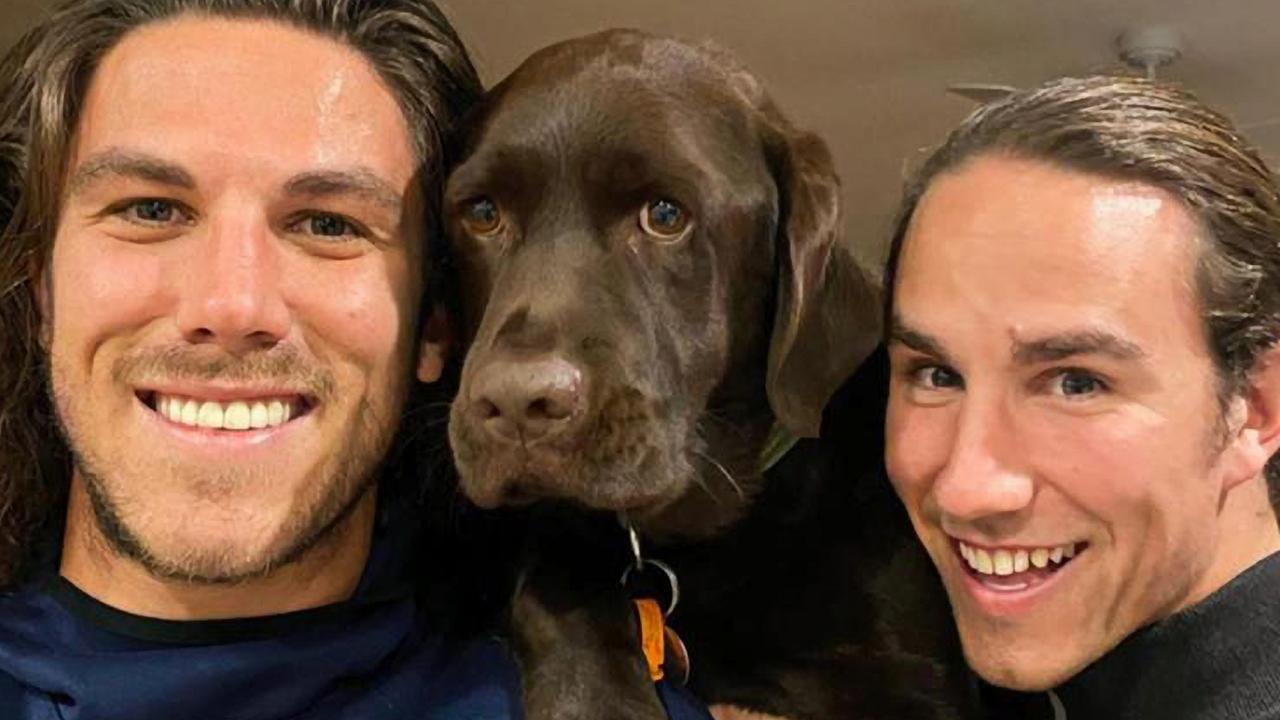Claremont serial killer and violent rapist Bradley Robert Edwards jailed for life in WA
A woman who believes she was also attacked by Bradley Edwards in her home before he went on to become the Claremont killer can be revealed.
Crime in Focus
Don't miss out on the headlines from Crime in Focus. Followed categories will be added to My News.
A woman who believes she was also attacked by Bradley Edwards in her home before he went on to become the Claremont killer can be revealed.
Elizabeth Mead — the mother of the so-called “secret daughter” of billionaire mining heir Michael Wright — has told of how she was attacked in an upcoming Sky News documentary on the Claremont killer.
Up until last week, any information which might identify her was suppressed by the WA Supreme Court after her name was included on a long list of “protected witnesses” requested by the prosecution, and granted by Justice Stephen Hall.
However, Justice Hall last week lifted the suppression order relating to Mrs Mead.
But her identity and her connection to the Wright case were not revealed.
In it, she described how the man who confronted her was wearing a “women’s nightie, and undies over his head”.
“He was pretty strong, but so was I,” she said.
When asked why she thought her attacker ran away, she said: “Well I hope it was the knee in the balls.”
Those details match up to those given pre-trial about an incident which occurred in Huntingdale in October 1988.
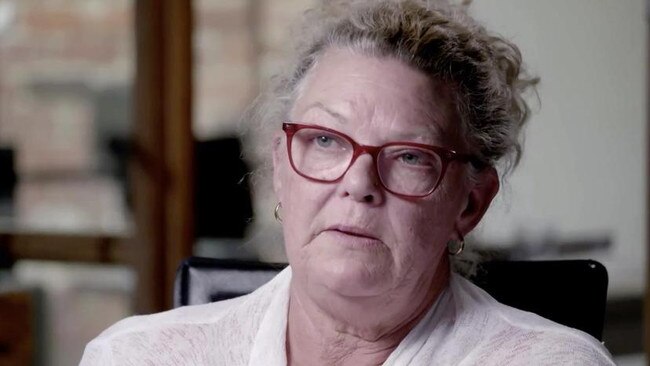
This was the last of the so-called “Huntingdale prowler” series, where items of underwear were stolen from homes and washing lines close to where Edwards was living.
It occurred after the attack on the girl in Huntingdale for which Edwards was sentenced yesterday.
“A man opened the toilet door and rushed out at her. He pushed her against the wall with force causing her to fall to the floor. The intruder then stood over her and slapped her repeatedly around her head and neck. She received bruises on both sides of her back as well as on her neck,” the court was told.
Edwards was never charged over that incident but it was part of the initial circumstantial case against him.
Mrs Mead first came to prominence when, in 2015, her daughter Olivia made an extraordinary claim against the will of her father — billionaire mining heir Michael Wright.
Michael Wright died in 2012 with an estimated family fortune of $2.7 billion, and Ms Mead sued the estate claiming she has been left “without adequate provision” in her father’s will.
She was awarded $25 million, cut on appeal to $6.1 million.
VICTIMS’ PAIN AS KILLER JAILED
Claremont serial killer and violent rapist Bradley Robert Edwards will likely die in prison after a Perth judge sentenced him to life behind bars with a minimum of 40 years to be served.
For the families of Edwards’ victims, this day of justice was more than two decades in the making and there was applause from the packed gallery as the sentence was finally handed down in the WA Supreme Court on Wednesday.
After court adjourned, the families of the victims embraced and some cried.
Edwards did not appear to show any emotion — as was the case during much of his seven-month-long trial.
The former Telstra technician, who called himself the “bogeyman” online and has been described as “evil”, was found guilty of murdering childcare worker Jane Rimmer, 23, in 1996 and solicitor Ciara Glennon, 27, in 1997.
But Edwards, 52, was acquitted of killing secretary Sarah Spiers, 18, whose remains have never been found.
He also pleaded guilty to twice raping a 17-year-old girl he abducted from a park and dragged through Karrakatta Cemetery in 1995, and indecently assaulting an 18-year-old woman sleeping in her Huntingdale home in 1988.
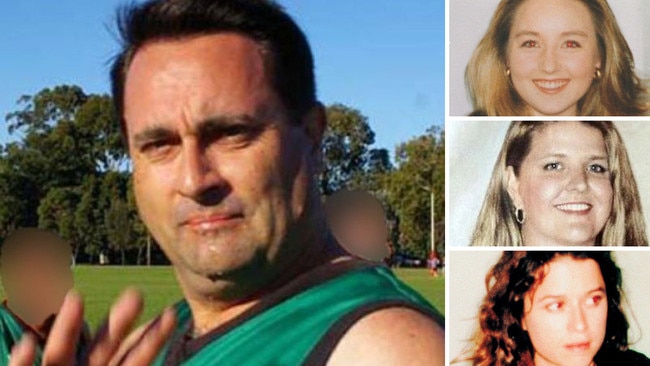
Prosecutors had sought an order that Edwards never be released from prison, but in handing down his sentence, Justice Stephen Hall said such an order was “drastic and exceptional”.
Only one other killer has received that sentence and Justice Hall said the cases were not comparable.
Justice Hall acknowledged one difference about Edwards’ case compared to the other double-murderers was that they were committed nine months apart.
“All murders are inherently serious,” he said.
“After careful thought, I’ve come to the following conclusion ... it is not necessary to make an order that you never be released ... I am satisfied there is another outcome.
“That outcome is to impose life sentences with a very long minimum term.”
Justice Hall said there was a high likelihood that Edwards would die in prison.
‘AS A VICTIM IT FEELS LIKE YOU PAY’
The woman who was abducted and raped by Edwards at Karrakatta cemetery when she was just 17 on February 12, 1995 has given permission for her entire statement that read out in court today to be published.
This is her heart-wrenching statement in full.
Victim Impact Statement:
“They say you always remember your first. In my case, I consider my first is Chloe.
“After I read those words in the paper from a story found on the perpetrators computer which appears were related to me a little piece of me broke. I ended up having a panic attack so badly I nearly ran my car off the road. What made it so difficult for me to breathe was how someone could think so little of another human.
“I pulled my car to the side of the road and was literally gasping for breath. My lungs constricted, my legs were shaking uncontrollably and I couldn't feel one side of my face. I thought I was having a stroke. It took me days to recover.
“That is a singular Victim Impact.
“That moment happened 24 years after the most horrific night of my life, it is just one small moment of so many, many moments that have kept me caged inside this traumatising experience.
“So how do you encapsulate pain that endures and you are made to relive for more than two decades so publicly? How do you explain how it is has impacted you? The truthful answer is you cant, you can only shed light and so I will try.
“You don’t ever recover from sexual assault, it is a lifelong sentence, mine has just been more widely discussed and publicised than most.
“When it came to writing this, I felt conflicted even attempting it, as I found even the idea of a Victim Impact statement a bizarre concept.
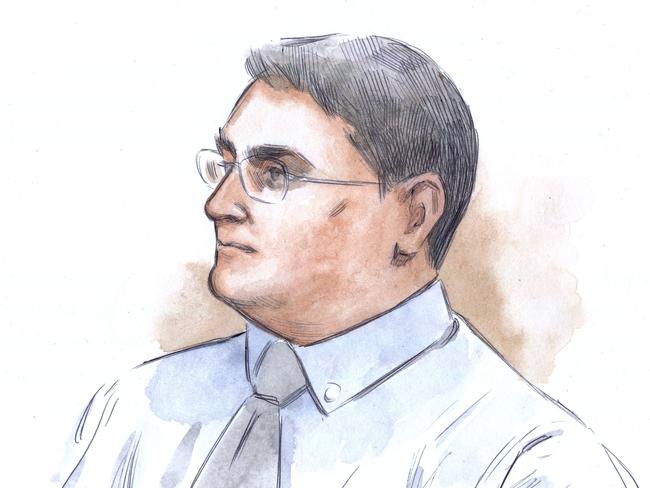
“Why would you want to explain just how traumatic the worst night of your life made you feel knowing the person who inflicted the pain could read it or hear it? That to me, seemed ludicrous. But after much contemplation what I came to realise was that, for me, it was important to have a voice and that I really don't care how someone, who to me is inhuman, responds but I do care deeply about how other assault victims feel and how my family and friends feel so my statement is in their honour.
“How do you encapsulate 25 years of Victim Impact, how should it be measured? For me it was a night of terror with so much associated pain in the aftermath that it his hard to know where to begin.
“Should I start with the nights lost to sleeplessness, stress induced weight loss or the clumps of hair that have fallen out, the onset of panic attacks, breakdowns, fear of the dark, being on constant high alert or jumping when the phone rings wondering if they have found him?
“I could use words like degraded, captured, unable to breathe, drowning in fear, indescribable fearfear so bad you wished you weren’t breathing because then maybe it would stop. But these words don't come close.
“I will never be able to truly convey the impact of being captured and deprived of my liberty. I knew when it happened instantly I was in very real danger. By the time I was in his vehicle I was picturing my own gravesite and that is a difficult concept to live with.
“Not only have I had to face my own mortality, believing I wouldn't survive then I actually had to survive it. I have also sat in a courtroom and listened to a Judge and lawyers coolly discuss whether or not I was going to be murdered that night, that is not normal, and that has impact.
“It would be far too easy for me to describe each step of the horror of that night and the subsequent fallout of something so terrifying happening to someone so young, but considering the level of detail already covered in this trial I don't need to revisit it, but the fallout was very real. It happened to me at such a young age, my youth was taken from me for no reason.
“In fact, there is so much you lose in the aftermath of sexual assault. So much is taken from you so quickly and in such finality. Your dignity, your security, your ability to trust, but what I also felt was taken from me was my home.
“Claremont was where I grew up, I know for most that is hugely privileged...and it is, but it was simply all that I knew. My parents didn’t grow up with any wealth, they worked hard their whole lives for their family. I worked four part-time jobs straight out of school while I was studying at University which I paid for. Life wasn’t given to me on a platter.
“Claremont was just simply my world it had been where I grew up, went to school, where my friends were, where I worked, where I shopped, where I learnt to drive, where I socialised it was my complete childhood. It was where I felt safe.
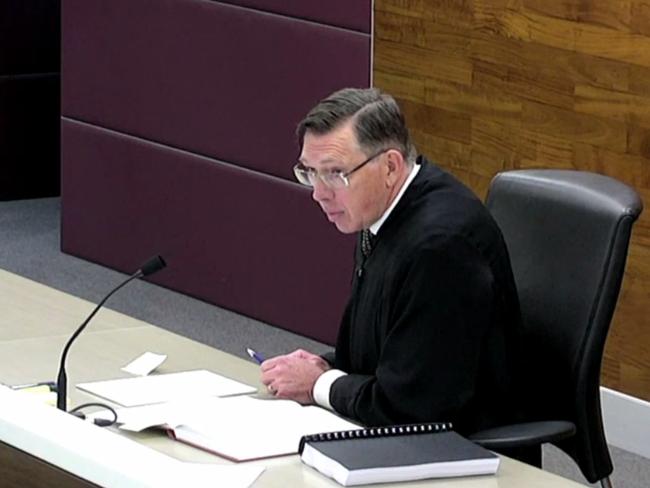
“So imagine when all of that is taken from you...and you still have to live in it. Every single street, light post, flashing sign, car that passes, carpark, shopfront, edge of a building, dark alleyway, footpath, person who walks past, anything really after that night it all meant something different. That has impact.
“Sexual assault makes you feel like not only are you unsafe but you also don’t belong like you did before. You don’t look at people the same way, you don’t touch people the same way, you lower your shoulders, eyes down, every shape and colour changes. For awhile anyway. Until you learn to fight again.
“I will never pretend that night has not had a devastating impact on my life, because it did, and it has deeply affected my family. And cruelly has continued to do so. But I have always refused to ever let it define me.
“As a victim it feels like you pay, and then you have to pay and then pay again even though you did nothing wrong.
“I have always maintained that some of the worst parts of that horrific experience was the aftermath. You are obviously irrevocably scarred from the incident but what you cant be prepared for is what you have to endure in its wake. The tests, the interrogation, the medical fallout, the psychological fallout, the questioning, witness statements, police meetings and for me due to the callous nature of the perpetrators crimes committed for many families, the Macro meetings, DPP meetings and now the court case and the emotional roller coaster of delays all making you relive the worst night of your life over and over all because of something, someone else chose to do and then was too gutless to own up to.
“One of the worst aspects for me during all of this, was a close member of my family became ill during the trial, and had to seek treatment in Hollywood Hospital. That is not a place for me that holds memories I would ever want to revisit. So not only was I was having to visit this hospital in between attending court, I had to drive past Karrakatta Cemetery to do so. This cruel irony never failed to escape me and will haunt me forever. That has impact.
“If you actually want to know what it feels like to experience all of this pain Your Honour it is lonely deep, gut-wrenching loneliness that literally no one else can understand because your experience is solitary.
“It is also constantly having to fight to lead a normal life after a very abnormal experience. Learning how to trust people again; how to force yourself to eat when all you feel is nausea; how to put a brave face on because everyone else has moved on and hopes you have too; how you need to constantly pull yourself together every time you are triggered for 25 years; learning how to NOT re-live that experience every night; how to not pass the pain on it is exhausting and that has impact.
“The toll that it has also taken on me is having is to watch the immense pain etched on my family and friends faces knowing how much I am suffering and not being able to take it away.
“I have had to relive more than two decades of this ongoing nightmare but it is not me alone who has had to endure it. Not only does the victim have to go through the life-changing challenges such a terrifying act brings but its ripple effect is seemingly endless.
“It affects the people who have guilt about whether they should have got you home safely - let me be very clear that was nobody’s fault but the perpetrators.
“It affects the hospital staff who find you as a shaking mess trying to work out what has happened.
“It affects the mother who has to wake her child in the middle of the night to take the morning after pill
“It affects the father and sister who have to sit outside while you are interrogated by the police for hours on end, challenging what you are saying.
“It affects parents who wait by the phone for AIDS test results hoping the nightmare doesn't get any worse than it already is.
“It affects the husband who has to watch their wife crumbling when times are bad.
“It affects the Macro police officers who have to witness the horror of the information that crosses their desk and then go home to their families at night.
“It affects the legal team who spend nights worried if they have every detail right, because they cant have it on their heads, not to gain Justice
“It affects anyone who knows you and cares about you.
“The rippling effect continues and I have spent my entire life trying to fight its spread and fight its impact.
“So where should the measure start and where does it end? I have experienced all of these ramifications but it is not the measure of who I am. While all of this has happened to me, I have never let it rule me. Something can break you, but you can still survive it, and you can thrive. Just as I have.
“As a victim of sexual assault I have always felt a sense of duty to myself to not let one more minute than need be wasted on being a victim any further. For me it was a choice, it was a choice to let that moment control me or fight every day to not let that happen. There is power in realising that, powering in realising that you know the truth and that you don’t have to prove it to anyone to find peace. That you have the power to not let that moment change you. That's the path I chose, but only with a lot of love and support.
“In my family we have never referred to the Perpetrator by name. We used to refer to him as the monster, however since his capture I have realised he is not a monster at all, rather the definition of a coward. He preyed on weak, vulnerable young women who didn’t stand a chance. How pathetic. It has been much easier in terms of impact to realise there was no evil genius at work here, he slipped through the cracks because he is unremarkable.
“If having the opportunity of a Victim Impact Statement is being able to voice how it has made you feel then the only way anyone could possibly understand, is to imagine all the despicable, torturous, harmful, terrifying deeds enacted and imagine it being done to someone you love. Your mother, your sister, your daughter. I am a mother, sister and daughter and this happened to me. So if you picture that happening to someone you love over and over and over and just imagine that kind of pain and torture. Then you might come close.
“Far more resolved people than I will find the courage and foresight to forgive so they can move on with their lives and stop the impact. I have the utmost respect for that kind of bravery and compassion.
“I, however, will never offer forgiveness and I am completely at peace with that. In fact I will find joy knowing you are locked behind bars, without freedom without choice, suffering for the rest of your life inside your own crippled mind.
“I feel like the rippling effect of pain, for me, can stop now.
“They say you always remember your first. Well in my case Edwards, I consider my first victory is you. You made me strong.
“And now I will leave this behind. I will leave this courtroom and finally go and live my life without you in it. I will live it joyously, respectfully and gratefully for myself, my family and for the lives that were lost. I will live and you wont.
“And as one of the victims of your crimes, I hope you are treated as well in prison as you have treated us.”
‘YOU ROBBED THEM OF THEIR LIVES, HOPES AND DREAMS’
Justice Hall said Edwards lived an unremarkable life while committing his crimes undetected for years.
The court heard Edwards refused to participate in a psychiatric report for his sentencing hearing.
Justice Hall said that meant he had limited information about Edwards’ background for sentencing and assumed Edwards’ reason was that he maintained his denial about the murders.
He noted Edwards had two younger siblings and supportive parents, and there was little to suggest trauma in Edwards’ childhood.
Justice Hall further noted Edwards did not testify during his trial, but he had viewed the offender in court and his police interview.
“You are a stoic and controlled person,” he said.
“You maintained a calm and unemotional demeanour throughout the trial.
“During the interview, you were polite and cooperative, and came across as an intelligent man.
“This ability to dissimulate may go some way to explaining how you were able to lead such an overtly ordinary life while committing the offences.”
Regarding the cemetery rape victim, Justice Hall said Edwards had laid in wait for a vulnerable and likely intoxicated woman.
“You carried out your plan with remorseless efficiency and without any regard for the terror you caused her,” he said.
Speaking about the murders, he said Edwards was “attracted” to their vulnerability.
“You have not only robbed them of their lives, but their hopes and dreams, and the dreams of others for them,” he said.
Justice Hall also referred to the victim impact statements, saying they were hardly required to have some understanding of how deeply the families were affected.
“No parent wants to outlive their children,” he said.
“To have their child taken and killed in the prime of their life is every parent’s worst nightmare.”
Justice Hall described Edwards as a “dangerous predator” who was remorseless in his disregard for the pain he caused.
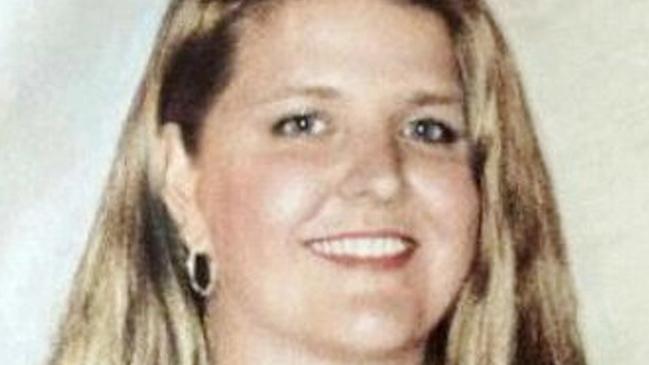
Earlier during the sentence hearing, the two women who were sexually attacked by Edwards before he committed the murders bravely described their continuing trauma and determination to not let it define them.
The woman who was attacked at her Huntingdale home in 1988 took a deep breath before reading her statement.
“I’m ok when I’m awake, it’s when I’m asleep that I’m scared,” she said.
The woman, who cannot be named, said she still feared being attacked and did not let her feet dangle off her bed.
“Then there are the dreams. I am always breathless trying so hard, but I can never get away. I’m trapped,” she said.
The woman, who is married with children, said her dreams changed after Edwards was caught.
“Edwards now features as the villain of my nightmares and I can’t make it stop,” she said.
The woman said she suffered from anxiety and panic attacks, and struggled to even hug her children, which had affected them, describing it as “generational trauma”.
She said the worst part of the trial was when she viewed Edwards’ police interview and he was shown a photo of her bedroom, which made her feel like he was being allowed into her space.
“It was a horrific moment for me,” she said.
At times, she said, she felt guilty for being alive and not helping police stop Edwards sooner.
The woman ended her statement by saying she was not a victim, rather she was a survivor.
She then looked Edwards in the eye as she quoted him: “I just want to go to sleep, wake up and this will all be a bad dream.”
‘HE IS THE DEFINITION OF A COWARD’
The cemetery rape victim, who also cannot be named, spoke for the first time in court, describing Edwards as inhuman.
She said the night she was attacked was the worst of her life.
“You don’t ever recover from sexual assault, it is a life-long sentence,” she said.
“By the time I was in his vehicle, I was picturing my own gravesite.”
The woman said her youth was taken from her “for no reason” but she would not let the double rape define her.
She said her family used to refer to Edwards as “the monster” before he was arrested.
“He is not a monster at all, rather the definition of a coward,” she said.
“He preyed on young and vulnerable women who didn’t stand a chance. How pathetic.
“He slipped through the cracks because he was so unremarkable.”
Speaking directly to Edwards, she said: “I will find joy knowing you are locked behind bars without joy, without choice.”
“They say you always remember your first, well in my case I consider my first victory is you, you have made me strong,” she added.
Prosecutor Carmel Barbagallo read the victim impact statement of Ms Rimmer’s mother Jenny, who said she missed her daughter every day.
“I believe Jane would have married and had children, she would have been a wonderful mother,” she said.
“Jane having children is something I think about and miss.”
Ms Rimmer, who was described as bubbly and sweet, disappeared after she visited the Continental Hotel with friends in June 1996 and was last captured on a security camera outside.
Her naked and decomposing body was found about two months later in semi-rural Wellard when a young family stopped to chase after a rooster and pick death lilies.
“I felt on the back of my leg it was a stick, but it was a foot,” Tammy Van Raalte-Evans testified during the trial.
Ms Rimmer had suffered a defensive wound to her wrist and a sharp object was used to slash her throat.
Edwards showed no emotion as each of the victim impact statements were read out.
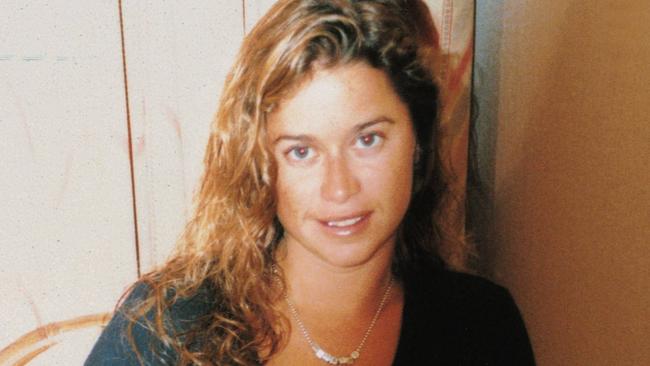
Ms Glennon, who was described as courageous, had been out with colleagues in March 1997 and was last seen walking down Stirling Highway by several witnesses, including a small group of men dubbed “the burger boys”.
A man searching for cannabis plants found her body dumped in Eglinton bushland a few weeks later.
Ms Glennon had a defensive wound to her arm and was also slashed to the neck.
Significantly, she had managed to claw at her attacker, with his DNA left under her nails.
Her father Denis previously indicated his family would not provide victim impact statements because they did not want to be “prisoners of the past”.
In her submissions, Ms Barbagallo said the offending was planned, calculated and cold.
She said it was a “miracle” that the women’s bodies were found and called on the judge to order Edwards never be considered for release from prison.
Defence counsel Paul Yovich argued against such a sentence, noting Edwards had not committed a crime since 1997.
He suggested a life sentence with a lengthy non-parole period was appropriate.
HOW EDWARDS WAS ARRESTED
Had the bodies of Ms Rimmer and Ms Glennon not been discovered by chance, the mystery might never have been solved.
But it took many years for all the pieces of the puzzle to come together — and before Edwards finally became a suspect, there were other innocent people who detectives circled.
Edwards was eventually arrested in December 2016 after police found his DNA on a silk kimono abandoned at the Huntingdale home, on the cemetery rape victim and under Ms Glennon’s fingernails.
The confirmation detectives needed to swoop on Edwards came after they examined the DNA recovered from a Sprite bottle that he had discarded.
Once officers knew they had a DNA match, Edwards’ home was raided and he was arrested.
During his lengthy police interview, the former Little Athletics coach and seemingly doting stepfather repeatedly denied any knowledge of the crimes.
But at his home, police discovered graphic pornography, including thousands of BDSM images, a film called Forced Entry depicting the rape and torture of young women, and violent erotic stories detailing the abduction of women.
That material was ultimately deemed irrelevant for the trial, but by then it was already public knowledge.
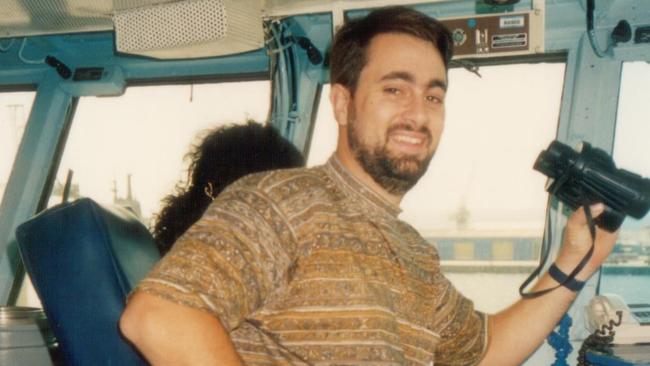
Justice Hall, who presided over WA’s so-called “trial of the century” without a jury, said when he delivered his 619-page verdict in September that there was no forensic evidence in Ms Spiers’ case.
However, there were some general similarities between her disappearance and the other two victims.
“The evidence of his propensity to kill may make him a likely suspect (in Ms Spiers’ murder), or even the probable killer, but it does not exclude the real possibility that some other person killed her,” Justice Hall said at the time.
The investigation into Ms Spiers’ murder remains open.
Ms Spiers, who was described as happy, vanished after attending Club Bayview with friends as part of Australia Day festivities in January 1996.
She left her friends at the club in the affluent suburb and called for a taxi from a phone box down the road, but was gone by the time the driver arrived minutes later to pick her up.
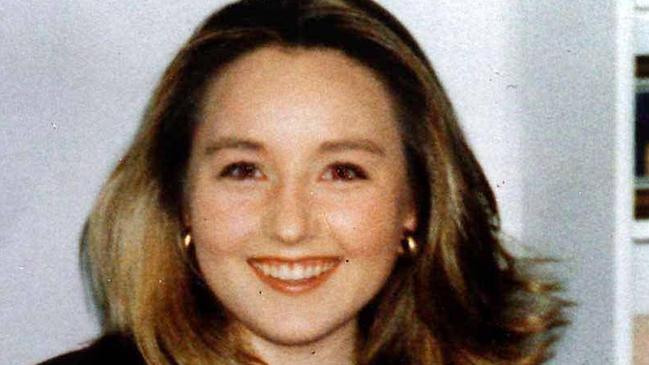
The majority of evidence presented during the trial related to DNA and fibre analysis.
But the trial also heard from Edwards’ former friends, his love rival who had an affair with Edwards’ first wife while living with them, and his two ex-wives — one of whom he met on April Fools’ Day.
The cemetery rape victim also gave evidence during the trial via a statement, saying she thought she was going to die, although he did not directly threaten her.
“I kept my eyes shut – I thought it would be better if he thought I couldn’t see him,” she said.
“I thought at the end of it all that he was going to kill me.”
The court also heard that in 1990, Edwards attacked a social worker from behind at Hollywood Hospital.
Edwards covered the woman’s mouth and tried to drag her into nearby toilets, but she broke free.
He apologised and was sentenced at the time to two years’ probation.
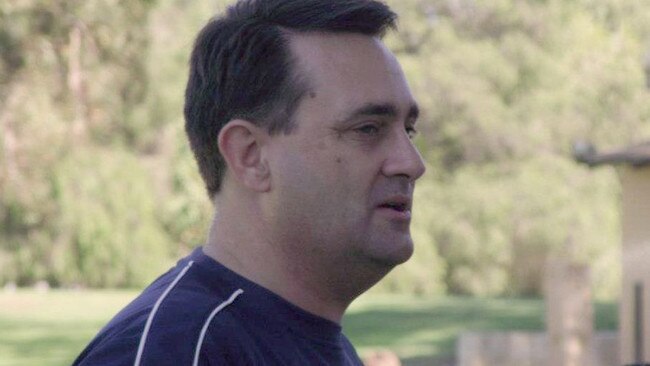
After the murder verdicts were handed down, the Rimmer family released a statement saying they were pleased to finally have “some answers about the abduction and horrendous murder of our beloved Jane”.
“Our family can now take some comfort today and the healing process can begin,” they said at the time.
Ms Glennon’s father, Denis, revealed he had made a gravesite promise to pursue justice for his daughter or “die trying”.
The Claremont serial killer case is believed to be the most expensive in WA’s history, with costs already exceeding $11 million.
Not even the COVID-19 pandemic could derail the trial.
Only one other killer — Anthony Harvey, who murdered his entire young family and mother-in-law in Bedford in 2018 - has been jailed for life in WA without parole eligibility.


